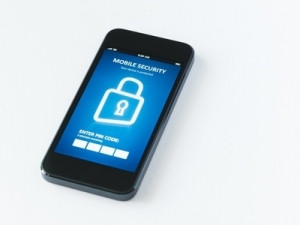
Consumers prioritise security above all else when it comes to using smartphones, with 78% claiming that security is the top feature they look want from a mobile device.
This is according to recent research by Gemalto in partnership with Smart Survey: which surveyed 1 300 adult smartphone users in Brazil, the Netherlands, SA, Singapore, the UK and the US.
When it comes to security, consumers expect an easy seamless experience from their app providers, says the study. Users would consider not one, but multiple methods to protect their apps, working alongside each other, such as standard login/password, anti-virus, encryption, and biometric authentication, it adds.
While consumers are open to the idea of their devices helping to improve everyday tasks, they are not as comfortable with their social media credentials being used to authenticate important services, such as online banking, says the study. Eighty three percent of respondents wouldn't log into their bank account using their Facebook log in details, or use their Facebook account as a component for two-factor authentication, it explains. In fact, only 4% would use either of these authentication methods when accessing their bank account from a mobile device, adds the study.
According to Trend Micro, South Africans are not immune to being caught in the trap of malicious apps and need to become increasingly vigilant in what they do and what they trust on their mobile devices.
The study found that convenience is another priority, with almost half of the consumers surveyed (48%) additionally citing speed and convenience as very important factors in their mobile usage.
However, end users are split in their expectations of where the burden of responsibility should lie for app security - most of them believe that app providers are best placed to protect smartphone apps, says the study.
The report says there is still work to be done to raise awareness of some of the top threats. Only 5% of consumers are concerned about malware when connecting to public WiFi, and only 1% are worried about ransomware, notes the study. However, they are more aware of phishing attacks, with one in ten citing this type of cyber theft as a concern, it adds.
"To build consumer trust and encourage mobile app usage, app providers must secure their apps whilst making this visible to users, so that they feel safe," says Sherry Zameer, senior vice president for Africa at Gemalto. "Whether this is achieved through security notifications to users, biometric means such as facial recognition, or the display of security symbols, providing this opens up considerable opportunities for growth. Consumers will gain a lot more from their devices once they are sure they can transact safely with their apps."
Share